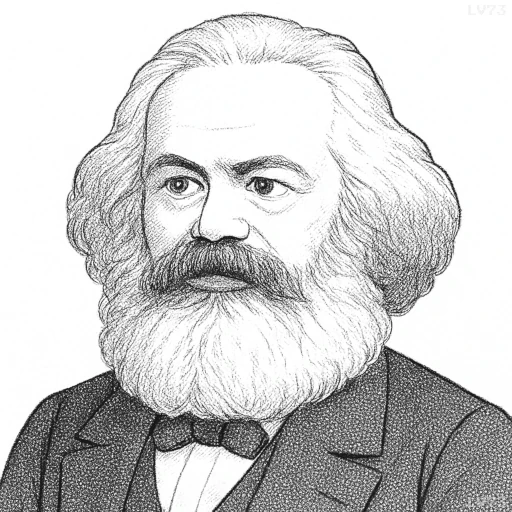“Workers of the world unite; you have nothing to lose but your chains.”

- May 5, 1818 – March 14, 1883
- Born in the Kingdom of Prussia (Germany)
- Philosopher, economist, political thinker
table of contents
Quote
“Workers of the world unite; you have nothing to lose but your chains.”
Explanation
This quote is one of the most famous rallying cries from Marx’s Communist Manifesto, calling for international solidarity among the working class. Marx urges workers everywhere to recognize their common interests and to unite in the fight against the capitalist system that exploits their labor. The phrase “you have nothing to lose but your chains” emphasizes that the working class, though oppressed and impoverished, has nothing to lose by rising up. Their material conditions are already dire, so there is no risk in challenging the status quo, and in doing so, they stand to gain everything: their freedom, dignity, and the end of exploitation.
Historically, Marx framed this call as an appeal to the proletariat, the class of workers who sell their labor to survive, and whose exploitation fuels the capitalist system. The “chains” represent the economic and social oppression workers face: long hours, low wages, and the alienation of labor, where workers are disconnected from the products of their work. Marx believed that workers had the potential to overthrow the capitalist system and establish a more equitable society based on collective ownership and the distribution of resources according to need, not profit. By uniting, workers could not only break free from their chains but also create a society that serves the interests of the many rather than the few.
In modern contexts, this quote continues to resonate in labor movements and social justice struggles. Workers around the world still face exploitation, particularly in industries that rely on cheap labor and global supply chains. Issues like income inequality, corporate greed, and worker’s rights remain central to the conversation about how capitalism perpetuates injustice. Marx’s call for unity among the working class is as relevant today as it was in the 19th century, reminding us that collective action is key to challenging the systems of power that keep working people subordinated. The quote urges workers to see their shared strength and to fight for a world where their labor is valued and their basic needs are met.
Would you like to share your impressions or related stories about this quote in the comments section?
